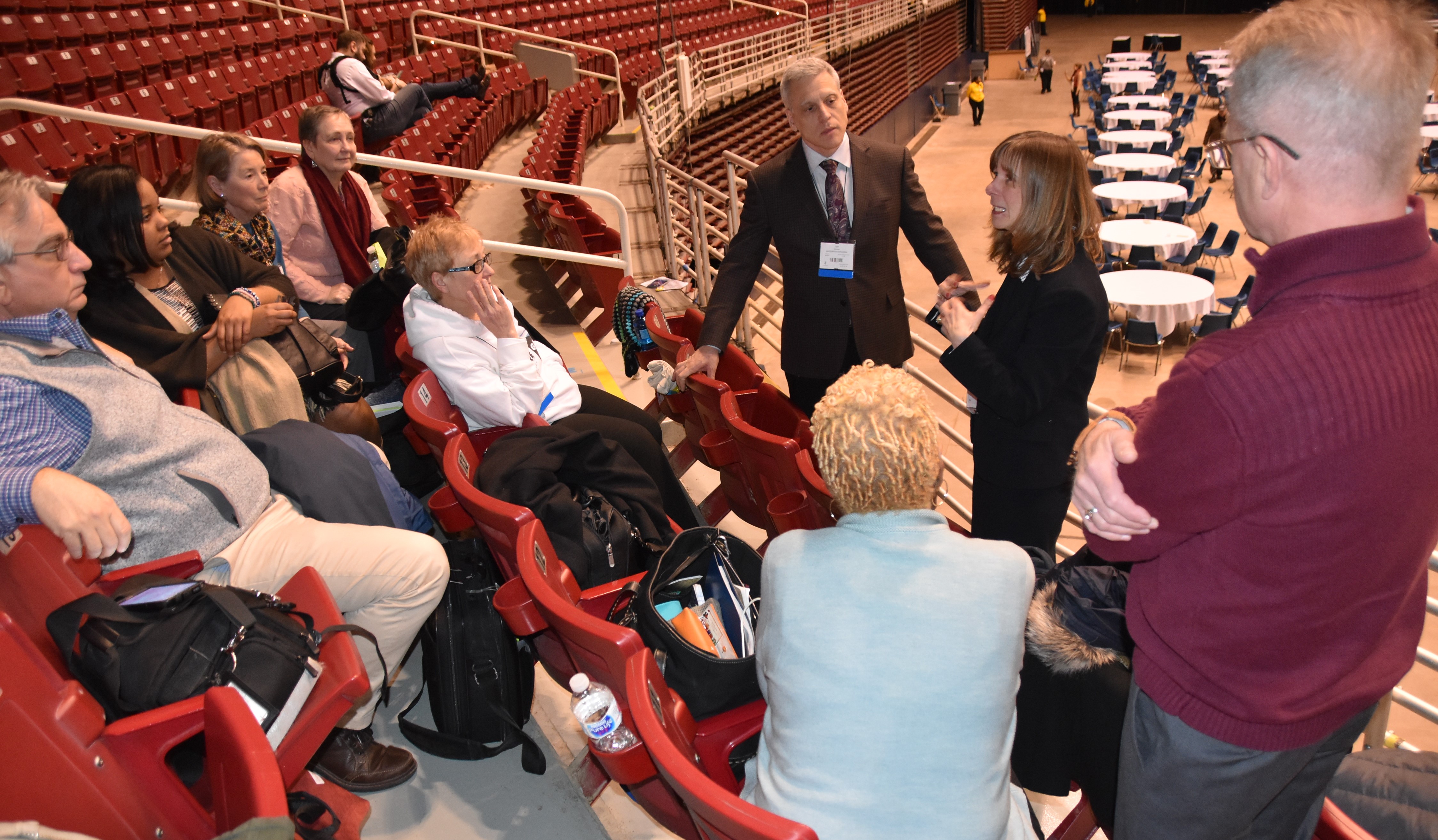
By John W. Coleman
The United Methodist Church’s 2019 General Conference Special Session, meeting Feb. 23-26 in St. Louis, Mo., finalizes its debates and decision-making Tuesday, in efforts to end the church’s impasse over whether to sanction or more forcefully reject homosexuality in ministry and marriage.
The conference’s “legislative committee of the whole” on Monday, Feb. 25, approved the Traditional Plan—favored by most theological conservatives globally—for referral to the plenary assembly for refinement and a final vote on Tuesday, Feb. 26.
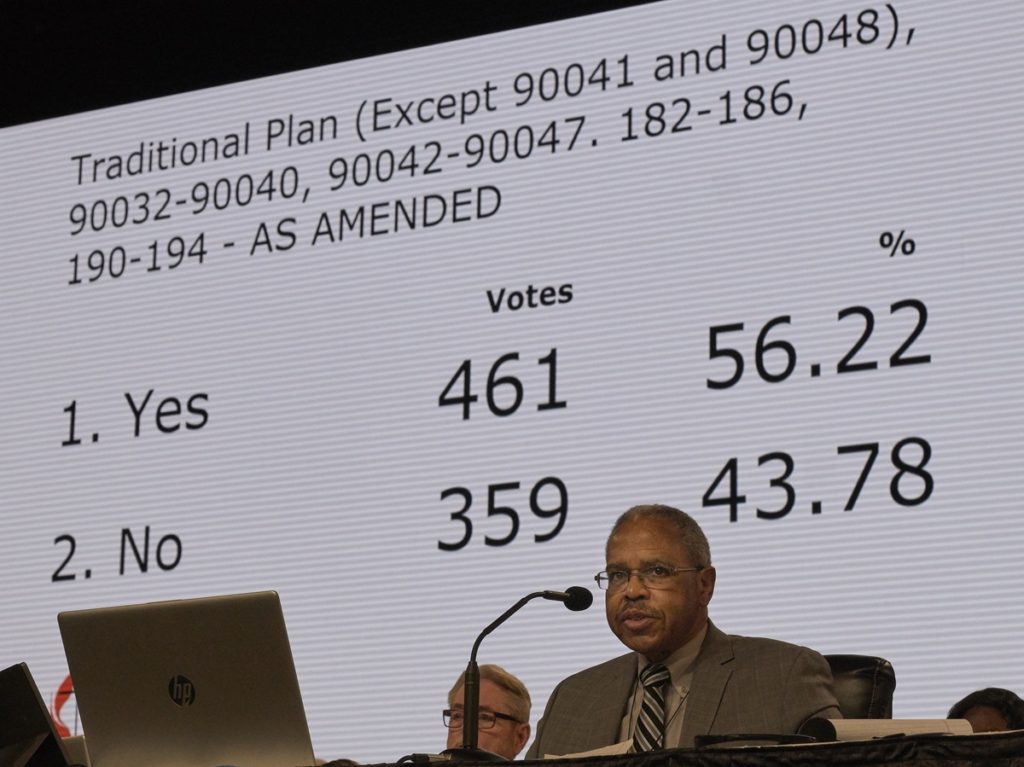
The plan would strengthen the denomination’s prohibitions against clergy officiating at same-sex unions or being “self-avowed practicing homosexuals.” It also encourages those who will not obey church prohibitions to find another church home.
The committee also referred two “disaffiliation” petitions that would allow churches to leave the denomination conditionally with their assets.
In a moment that that left the room in stunned silence, a majority of delegates then rejected the One Church Plan, favored by the Council of Bishops and the Special Commission on A Way Forward. That means, despite its passionate support, it was not referred to the full conference for a vote on Tuesday. The only way for it to remerge would be as an amendment from the floor in a minority report.
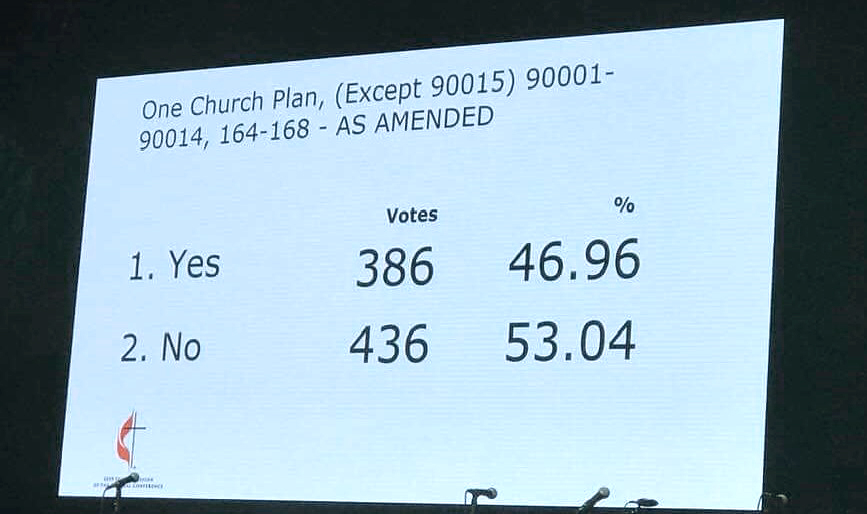
The One Church Plan would have left questions of such weddings up to individual clergy and congregations — and questions of gay ordination up to individual conferences. Central conferences — church regions in Africa, Europe and the Philippines — would be able to determine their own policies.
The legislative committee also debated the Simple Plan, which was not among the Special Commission’s three plans, after the body voted to delete all other petitions except that one. As expected, the Simple Plan lost the vote to refer it to the full assembly. Debate on that plan was allowed despite its low prioritization ranking so that the voices and views of its proponents—especially delegates self-defined as queer—could be heard.
“Yes, it’s going to be defeated, that’s clear,” said the Rev. Adam Hamilton, of the Great Plains Conference. “But this is the one opportunity to say we care enough to listen for a moment.”
As Simple Plan proponents shared their progressive, emotional appeals, one anguished voice rose above the others and momentarily shattered the assembly’s quiet decorum that seemed almost acquiescent.
Jeffrey “J.J.” Warren, a young, openly gay reserve delegate from the Upper New York Conference, voiced his pain and frustration but also his vision of a more welcoming church for wary young people of all sexual orientations.
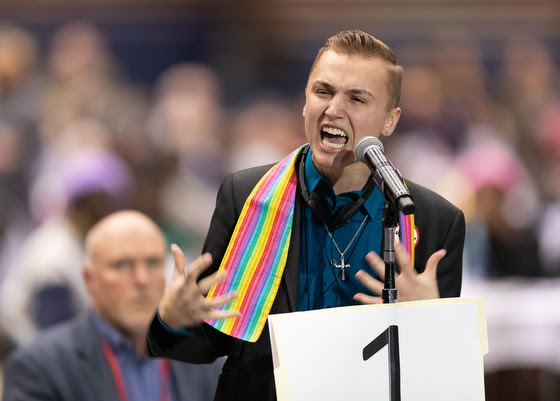
“They didn’t know God could love them because their churches said God didn’t, and so if we can be a church which brings Jesus to people who are told (they) can’t be loved, then that’s what I want our church to be, and that’s the Methodist Church that I love and that I want to be a pastor in one day,” Warren said.
The room erupted in applause with a standing ovation as he spoke of his evangelism work with fellow LGBTQ students at Sarah Lawrence College, and his dream of continuing his ministry as an ordained clergy leader.
The final major plan offered by the Way Forward Special Commission, the Conference Connection Plan, was among the petitions vacated by the vote to delete all further petitions that scored few votes in Sunday’s prioritization poll.
It was a mostly quiet, tense convention hall Monday afternoon, far from the celebrative prayers and joyous praise of previous days. The voting outcomes were encouraging for some, discouraging for others.
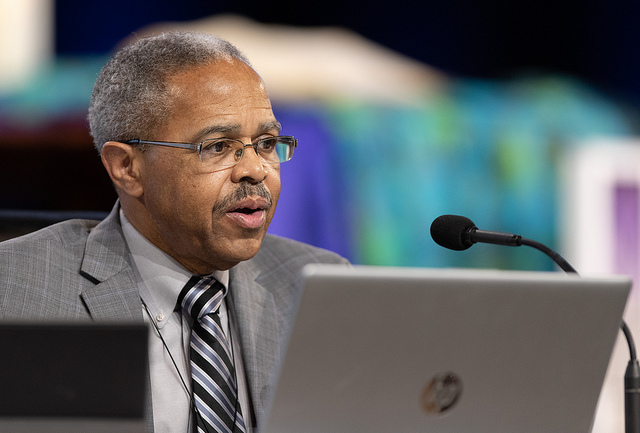
“Our only enemy is the clock,” said the Rev. Joseph Harris, of the Oklahoma Conference, in his opening remarks as chairman of the plenary Legislative Committee. He was elected Sunday to that role, and his plenary committee completed its work by the day’s end.
The Traditional Plan won an easy referral to the full General Conference for further debate, amendments and final votes. There seemed to be little debate on the plan Monday, beyond several attempts to address measures ruled unconstitutional earlier by the church’s Judicial Council. Suddenly, a delegate called for a vote to stop all debate, and the plan was quickly approved for referral by a vote of 461 to 359, or 56.22% to 43.78%.
With frequent and decisive votes to close and prevent debates, the slow legislative committee process may have seemed too swift for some. One member reported that delegates were waiting to propose several amendments to the Traditional Plan, but the sudden closure to debate prevented them from being heard
The One Church Plan received more extensive debate but was not approved for referral, losing by 436 votes (or 53,04%) against the plan versus 386 votes (or 46.96%) for the plan. Defenders described the plan as a way to keep together an ethnically and theologically diverse denomination that has a number of LGBTQ members, including clergy. Opponents accused the One Church Plan of dramatically changing the denomination’s connectional form of governance and violating Scripture.
“It is better to be divided by truth than united in error,” said Rudolph Merab, the lead lay delegate from the Liberia Conference.
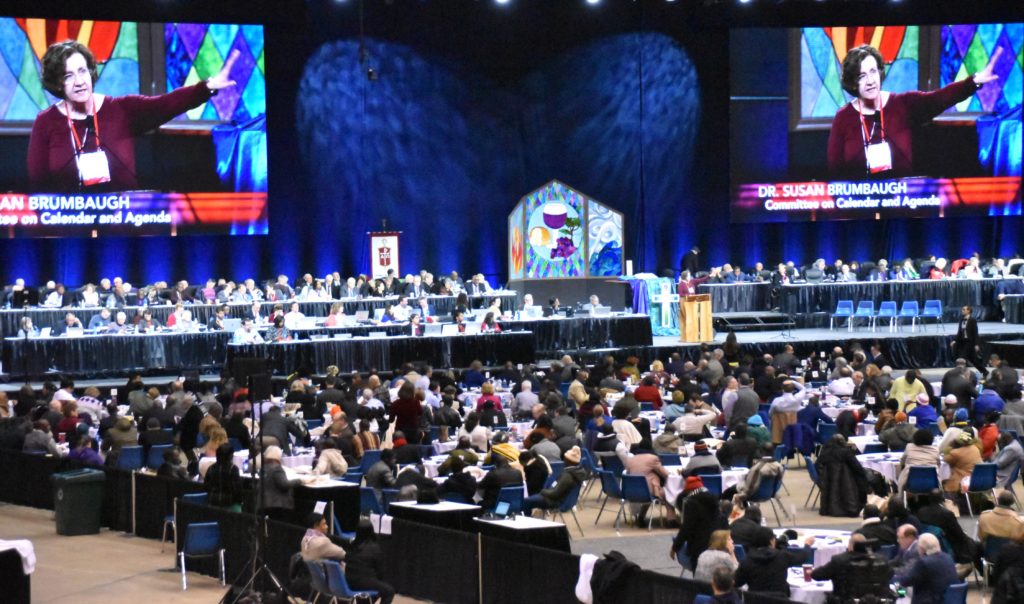
Following its defeat, observers scattered among the bleachers began singing “Jesus Loves Me, Yes, I Know,” as some quietly cried and embraced one another. A large group of advocates later joined in a boisterous rally in the outside corridor.
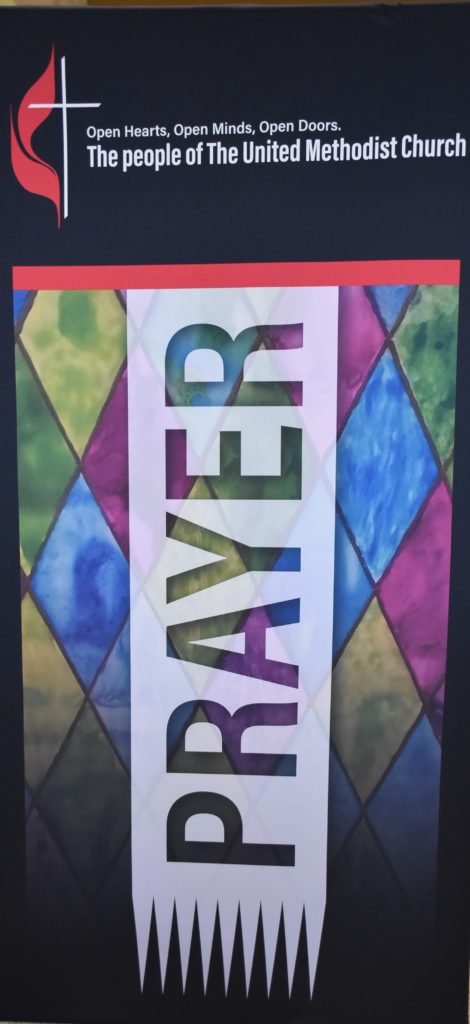
“I am sorrowing yet rejoicing!” said Philadelphia Area Bishop Peggy Johnson in a later comment. “I am sorrowful at the harm and woundedness that the LGBTQIA+ and their allies are experiencing. I am rejoicing that God is not done with us yet ,and the doors of ministry with all are still open. These doors shall continue to open wider in years to come. I believe I will see that day!”
In their final action Monday, delegates voted to send all the legislation they had approved — the Traditional Plan and the two disaffiliation petitions — to the UMC’s Judicial Council for review. The council agreed to review the “constitutionality, meaning, application or effect” of the plans and petitions approved so far.
The disaffiliation petitions are “unchartered territory, as they would release the trust clause, at least for a time,” explained the Rev. Dawn Taylor-Storm, Eastern PA Conference delegation leader, on Facebook. She cautioned her fellow delegates and observers to study and consider those petitions closely.
The plenary conference is debating, refining and voting on this legislation, Wespath pensions policy concerns and other, related matters during its final session Tuesday. The conference must adjourn by 6:30 PM.
More details of the GC2019 Special Session debates and actions can be found in UM News Service articles:
- Traditional Plan advances as One Church, Simple plans fail
- Key GC2019 votes prompt anguish, satisfaction
See more photos from the Monday, Feb. 25, session on the UMNS Flickr page.
